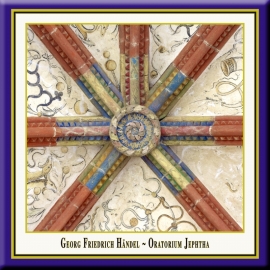Simon Bailey

Bass
Simon Bailey was born in Lincoln and read music at Clare College, Cambridge University. Simon subsequently studied at the La Scala Academy, Milan and won the Concorso Internazionale dell'Accademia del Teatro alla Scala in 1999, the Concorso Vocale Internazionale di Musica Sacra 2004, and was a semi-finalist in the Placido Domingo Operalia competition 2003. In August 2002 he joined the ensemble of Opera Frankfurt as a company principal. Simon's exceptional vocal range has enabled him to perform a rich variety of roles across the bass and baritone repertoire including Figaro Le Nozze di Figaro (La Scala, Rouen and Festival de la Vézere in Limoges), Schaunard La Bohème (La Scala) and Mustafa L'italiana in Algeri (Accademia Rossiniana in Pesaro). He sang the title role in Handel's Hercules at the Athens Festival to critical and public acclaim at the Herodes Atticus Odeon, later repeated in Reims cathedral and the Concertgebouw in Amsterdam and was invited by Luigi Alva to Lima, Peru to debut Enrico in Lucia di Lammermoor. Further guest engagements for Opéra de Lille, Glyndebourne Festival, La Scala, Milan, Truffaldino Theater an der Wien, Opéra de Lille and Dublin etc. Simon has appeared in recital at the Teatro Britanico, Lima, and also several times in recital at La Scala. Engagements in 2012/2013 included Alfonso Cosi fan tutte, Chabrier L'Étoile, Leporello Don Giovanni, Nick Shadow The Rake's Progress, Figaro Le Nozze di Figaro and title role Bluebeard's Castle with Oper Frankfurt and Gurnemanz Parsifal (in concert) in Bad Homburg and Wiesbaden. Subsequent engagements include Méphistophélès Damnation de Faust for Staatstheater Stuttgart.





